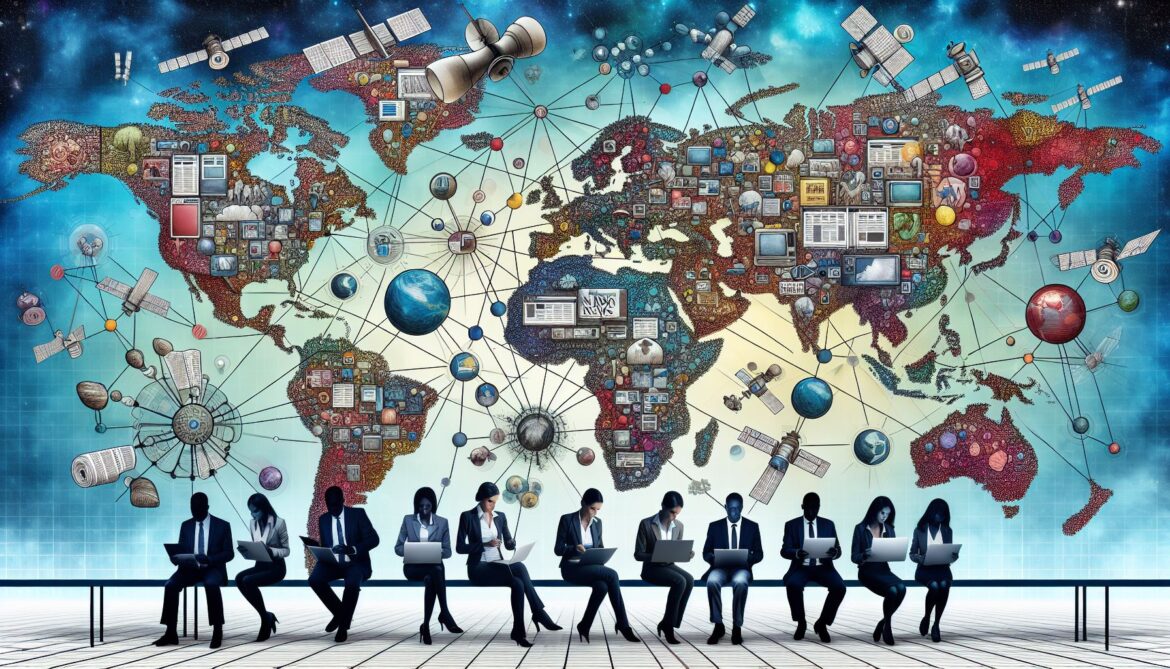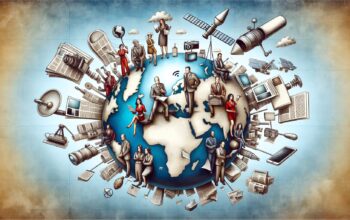
Our world is in constant flux. A tumultuous mix of geopolitical shifts, environmental crises, and technological advancements mark the current era. In the face of these rapid changes, staying informed is not just a responsibility; it’s a necessity. News, as we understand it, allows us to create a coherent narrative from this relentless churn of events. It enables us to navigate our world, increasingly globalized and interconnected, with understanding and insight.
Critical shifts around the planet have been making headlines recently, shaping the international narrative in unprecedented ways. The political crisis in Hong Kong, the wildfires raging across Australia, the ongoing Brexit negotiations, and the intensified tensions in the Middle East are stark testaments to the turbulence of our times. Each of these significant global events has had an inescapable influence on the societal mood and discourse.
Media plays a defining role in amplifying and disseminating these stories to every nook and cranny of the globe. As an intermediary between the event and the audience, media sources shape the narrative and the perspective through which we understand the news. However, the unbiased transmission of information, the core tenet of journalism, faces substantial challenges in the digital era.
Enhanced accessibility has resulted in an information deluge. Our digital age, dominated by social media and online platforms, presents users with a steady, often overwhelming stream of images and headlines. Navigating this barrage and discerning fact from fiction is increasingly challenging. Moreover, as profit-oriented motives creep into journalistic practices, maintaining integrity is becoming an uphill battle. Digital media have also democratized the dissemination of news, where anyone with a smartphone could potentially break a story.
However, this democratization also has its downside. The rise in ‘fake news’ and the emergence of filter bubbles obfuscate truth and compromise credible reporting. The role of the media in these circumstances is no longer solely about reporting the news, but also about debunking misinformation. Society relies on its media to ensure the veracity of the news they disseminate, particularly in a landscape where false information can spread like wildfire.
The digital age has exacerbated the inherent bias within the media. The power to decide which story to spotlight and which perspective to highlight can shape public opinion and provoke a societal reaction. This power to incentivize and influence is enormous and warrants careful, ethical use.
The sphere of news is no longer limited to our morning papers or the 9 PM broadcast. It is ubiquitous – a constant streaming data feed populating our phones, our social media, and our conversations. In this landscape, journalistic integrity’s importance is not merely preserving the essential function of news, but safeguarding informed citizens’ democracy.
As we navigate this dynamically evolving media landscape, the responsibility to maintain our discernment and critical thinking falls upon us. It is crucial to remember the potential that accurate news has in shaping our understanding of global events, aiding societies in making informed decisions about our collective future. The ability of the media to shape public awareness is an influential force that holds the potential to spark social change. With the escalating global events and increasing mass communication’s scope, this force is more impactful than ever. Understanding this will allow us to be more informed, responsible citizens in this increasingly interconnected global family.



